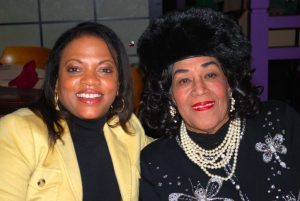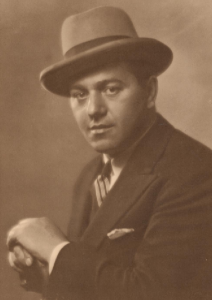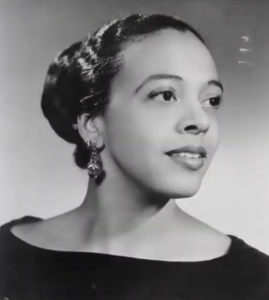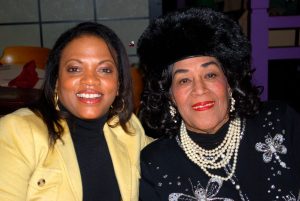Podcast: Play in new window | Download (Duration: 1:32:32 — 106.0MB) | Embed
Subscribe: Spotify | TuneIn | RSS | More
As the final entry in this year’s Black History Month episodes, my dear friend Previn Moore introduces his Listeners’ Favorites choice, an episode I published in the early months of Countermelody back in the fall of 2019. It features two phenomenal Black sopranos whose friendship and mentorship Previn outlines in detail in an introductory interview I did with him at his home in Vienna this past week. This episode features the phenomenal, the legendary, the pathbreaking soprano Camilla Williams (1919-2012), whom Previn first met as a young tenor at Indiana University’s School of Music, where Miss Williams was the first African American teacher of singing to serve on the faculty. While there, Previn also formed a lifelong friendship with Camilla’s student, Janet Williams, who herself went on to a brilliant worldwide career, including twelve years as a leading soprano with the Staatsoper Unter den Linden here in Berlin. Janet and I met as fellow students in the Merola Opera Program of the San Francisco Opera and it has been my joy and a privilege to share a treasured friendship with her ever since. In tribute to both of these extraordinary sopranos, I offer a cache of rare studio recordings by Camilla Williams, supplemented by live material sung by Janet Williams from the artist’s private archives. Included among the selections are excerpts from Camilla’s rarely-heard album of spirituals on the MGM Records label, and a concert given by Janet Williams in her home town of Detroit in 1989, capped by a stunning rendition of Undine Smith Moore’s arrangement of the spiritual “Watch and Pray,” dedicated to Camilla Williams. Many thanks to Previn, Janet, and the extraordinary Camilla Williams for their shining examples and for their dedicated artistry.
Countermelody is a podcast devoted to the glory and the power of the human voice raised in song. Singer and vocal aficionado Daniel Gundlach explores great singers of the past and present focusing in particular on those who are less well-remembered today than they should be. Daniel’s lifetime in music as a professional countertenor, pianist, vocal coach, voice teacher, and journalist yields an exciting array of anecdotes, impressions, and “inside stories.” At Countermelody’s core is the celebration of great singers of all stripes, their instruments, and the connection they make to the words they sing. By clicking on the following link (https://linktr.ee/CountermelodyPodcast) you can find the dedicated Countermelody website which contains additional content including artist photos and episode setlists. The link will also take you to Countermelody’s Patreon page, where you can pledge your monthly support at whatever level you can afford.



